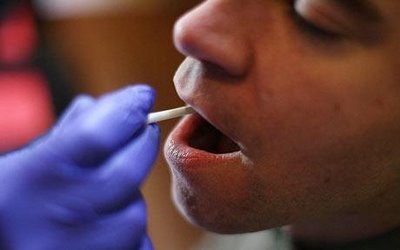A new law passed in Parliament today gives police wider powers to take DNA samples from people charged with a range of serious crimes.
 In 2011, the provisions under the Criminal Investigations (Bodily Samples) Amendment Act will widen further to allow DNA samples to be taken from any person the police intends charging with an imprisonable offence.
In 2011, the provisions under the Criminal Investigations (Bodily Samples) Amendment Act will widen further to allow DNA samples to be taken from any person the police intends charging with an imprisonable offence.
Around 100,000 DNA profiles are held in the National DNA Databank operated by Environmental Science & Research. Samples are currently taken from:
– Suspects in criminal investigations who have volunteered a DNA sample
– People convicted of certain offences who must provide a DNA sample (typically for offences punishable by seven years’ or more imprisonment)
– Anyone who volunteered a DNA sample for the Databank.
Of the 100,000 DNA samples held in the databank, 8,000 relate to unsolved criminal cases or “cold cases” according to the Ministry of Justice.
Dr Jill Vintiner, Forensic Programme Manage, Institute of Environmental Science and Research (ESR) Limited comments:
“A DNA Databank is a very useful intelligence tool and can assist with the resolution of crime. The recent law change will provide for the ability for the NZ DNA Databank to grow further however important fundamentals such as the sample being destroyed once a profile is obtained and the provision for profile deletion given certain criteria still remain. Whilst DNA results have proved important in criminal cases it is very often one strand of forensic evidence that sits alongside other evidence within a case. DNA evidence also has the ability to exclude individuals from being possible suspects which is extremely important as well.”
Forensic science expert Dr Anna Sandiford to comment on the new DNA-gathering provisions:
“Personally, I have no problem with the New Zealand Police being given greater powers to collect DNA samples from individuals who will be charged with an offence. At present, DNA and fingerprints are collected from everyone who is arrested in England & Wales, regardless of whether or not they are eventually charged. This is currently the subject of heated debate and the government is today in a position of having to make a decision about when and what samples from people who are essentially innocent of any crime are to be removed from the database. Some would say that perhaps the UK has gone too far.
“Compared with the UK, the NZ database is relatively small and even with the additional samples being added as the law will now allow, it will remain relatively small. Concern has recently been raised in the UK about whether or not the DNA database has got so big, interpretation is becoming problematic – as at 31 March this year, there were DNA profiles from 4.86 million individuals on the database.
“Particularly from the first link I note that ‘there are strong statistical arguments against the application of such a large database in forensics. Not only does the complexity of storing and searching such a large body of data increase substantially with the size of the database, but so too does the probability of errors, duplicates and false entries. Moreover, the chance of getting a false positive match is also much higher, simply due to the vast number of comparisons involved and the percentage of the population who have similar (or identical) DNA fingerprints.'”
“Cold case reviews in the UK have shown that successful matches can be obtained from people who have previously committed a serious offence and then more recently have to provide DNA and fingerprints in relation to minor offences such as traffic violations. The beauty of cold case reviews is that DNA can solve crimes that occurred before the use of DNA as a crime fighting tool became widely known.
A lot of criminals who committed offences in the 1990s or before probably didn’t even realise that they deposited anything worth collecting at the crime scene. Only the foresight of police and scientists meant that samples were collected and are now available for testing. In NZ, the first case that springs to mind that could have been solved one way or the other if samples had been kept for future analysis is that of David Bain, but samples were not kept and now cannot be analysed.”
“Overall, I think that if managed correctly and with an eye on what has happened in other countries that have already been along this route, the use of such a DNA database in current and cold cases is potentially of great assistance in solving crimes. It is, however, important that users and interpreters of the database understand and acknowledge any potential failings as the database grows and not blindly accept everything that is suggested by the database. Experience in the UK has told them not to rely solely on DNA hits to successfully prosecute cold cases and I personally am always more comfortable with a multi-disciplinary approach to crime investigation.”